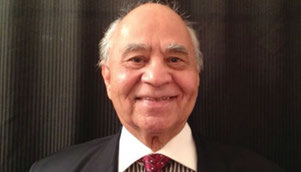
NEW DELHI (TIP): The twin blasts at Hyderabad aresuspected to be the handiwork of IndianMujahideen(IM) commander Riyaz Bhatkal. Althoughintelligence agencies are in no rush to jump to ajudgment, their suspicion of IM’s role is derived fromthe fact that the terror outfit had targeted precisely thesame spot – near the foot overbridge in Dilsukhnagar -on August 25, 2007, when IM carried out serial blasts inHyderabad.While the bombs that Bhatkal and his team, essentialIM’s Pune module, set off at Gokul Chat Bhandar andLumbini Park killed 42 people, Dilsukhnagar escapedthe mayhem because the device planted theremalfunctioned. Residents of the locality, however, ranout of luck on February 21.
During their interrogation in 2008 in connection withtheir involvement in the serial attack on Hyderabad theyear before, two members of IM – a Indian proxy ofLashkar-e-Taiba which was launched to cloak Pakistan’sinvolvement in the terror campaign against India -confirmed that Bhatkal was the mastermind.Speaking to reporters after the twin blasts onThursday, home minister Sushilkumar Shinde seemedto reflect the principal assumption of the agencies aboutBhatkal and his IM gang being the chief suspects whenhe said the latest attack was similar to the 2007 serialattacks in the city.The suspicion is derived also from the testimony ofthe three alleged IM terrorists to Delhi Police in October2012.
Imran, Tabrez and Maqbool told the special cellthat they had been assigned by Bhatkal to do a recce ofDilsukhnagar and other communally sensitive areas inHyderabad.The motivation for the terror strike is suspected to bethe call given by Hafiz Saeed – Lashkar chief andprincipal mentor of IM terrorists – to avenge thehanging of Parliament attack convict Afzal Guru.United Jehad Council, with Lashkar as one of its mainconstituents, had on February 13 – four days after Guruwas sent to the gallows – vowed to retaliate against theexecution.Intelligence agencies did not treat it as rhetoric, anddid sound a countrywide alert earlier this week,although Shinde acknowledged that the warning wasgeneral in nature.
Dilsukhnagar, a Hindu-dominatedlocality with a history of communal tension, has beenon the terrorists’ radar for long; at least since 1999 whena bomb was planted near a Hanuman temple. The devicewas detected in time by police.The timing was significant, just an year afterintelligence agencies zeroed in on Abdul Saleem Junaid.A Pakistani, Junaid was launched into India by Lashkarcommander Azam Cheema. While Junaid, who wasdesignated as the head of Lashkar in India, wassupposed to be based in Delhi, he found Hyderabad morehospitable and settled down there after marrying a localgirl. The cover of a regular couple proved useful forsetting up several sleeper cells, at least a few comprisingPakistanis.The terror group targeted Dilsukhnagar again in 2002,planting a bomb near the Saibaba temple killing twopersons.




Be the first to comment